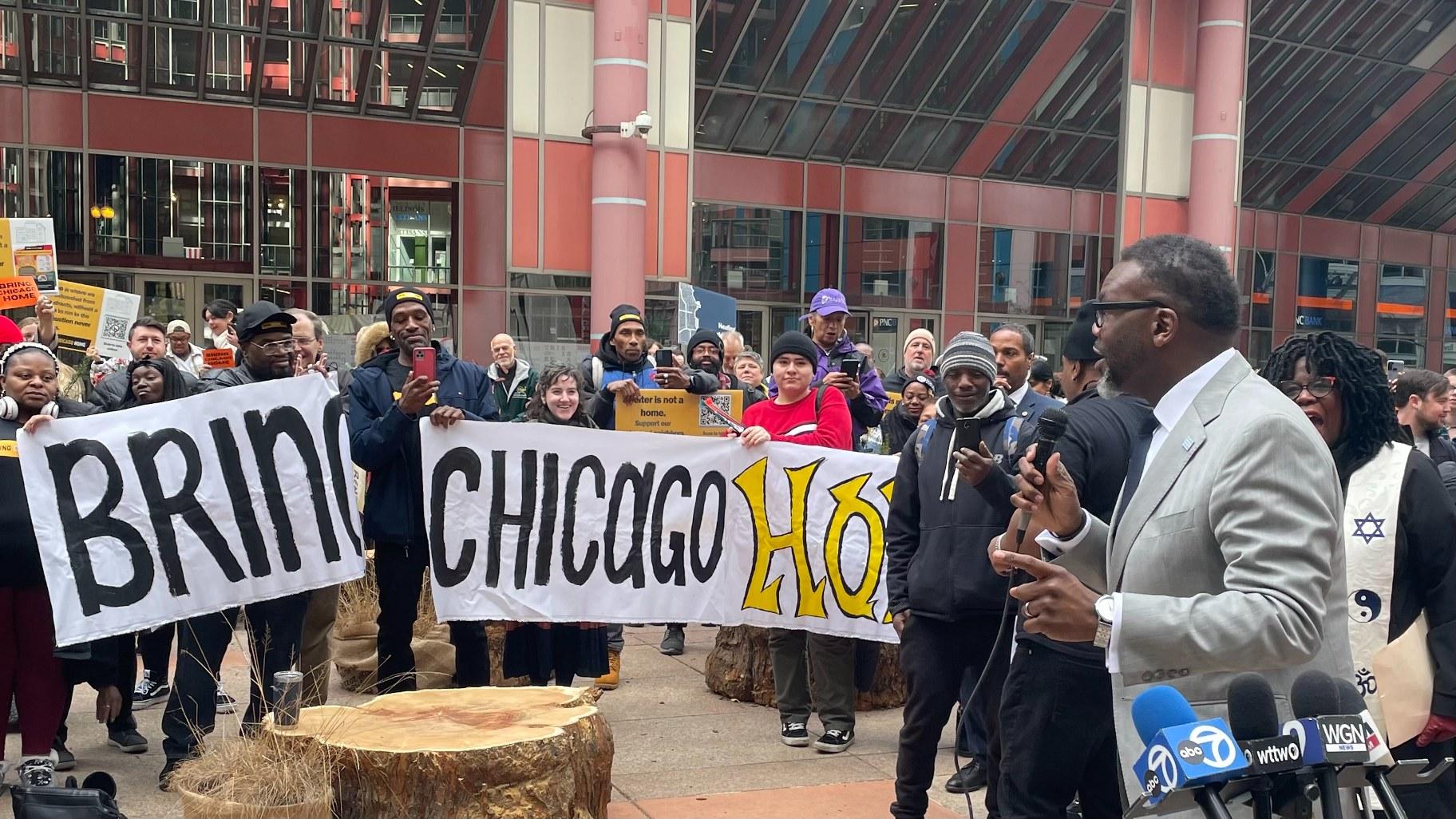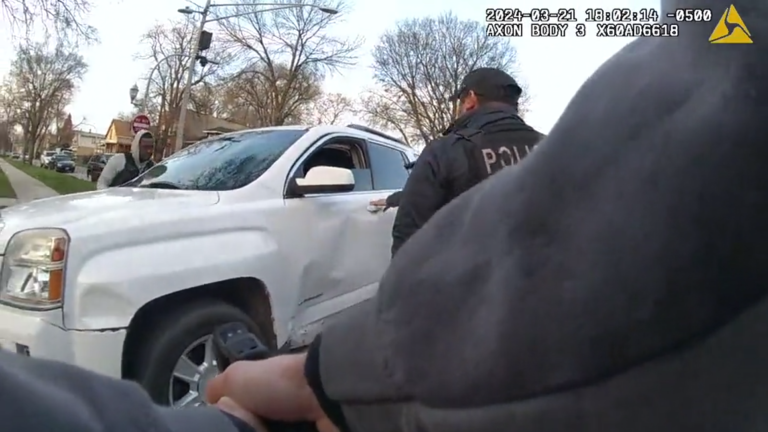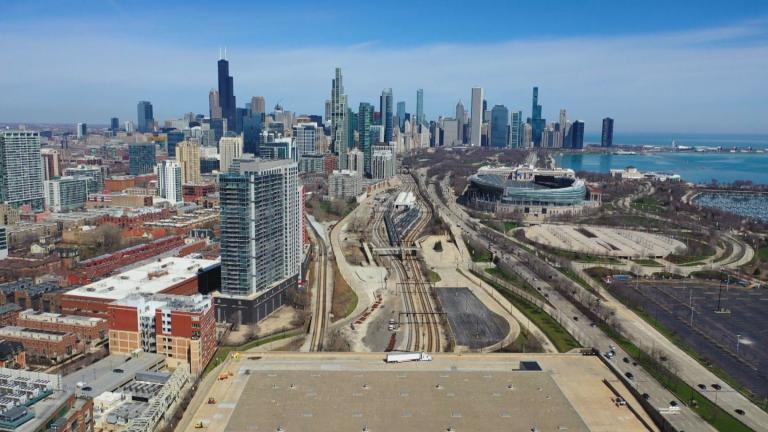 Mayor Brandon Johnson rallies supporters of the proposal known as Bring Chicago Home on Tuesday, Nov. 7, 2023. (Heather Cherone / WTTW News)
Mayor Brandon Johnson rallies supporters of the proposal known as Bring Chicago Home on Tuesday, Nov. 7, 2023. (Heather Cherone / WTTW News)
A push to give the Chicago City Council the power to hike taxes on the sales of properties worth $1 million or more to fight homelessness has failed, according to the Associated Press.
The rejection of the proposal known as Bring Chicago Home by nearly 20,000 votes is a significant defeat for Mayor Brandon Johnson, who embraced a yearslong campaign by advocates for the unhoused in Chicago to create dedicated city funding to get people off the streets and out of city shelters.
After 12,634 mail-in ballots were counted by Chicago election officials late Friday, the results were essentially unchanged. Approximately 53% of voters rejected Ballot Question No. 1, according to unofficial totals from the Chicago Board of Elections. Officials will continue counting ballots through April 2, the deadline for mail-in ballots to arrive.
Supporters of the measure, who have been bracing for its defeat since Tuesday night, have vowed to continue to fight to help unhoused Chicagoans.
"These election results did not end the fight," the organizers of the ballot measure said in a statement. "Instead, they amplify our commitment to finding solutions for housing insecurity and addressing homelessness.
Johnson told reporters Wednesday he would not consider scaling back his “big, bold” progressive agenda, vowing to “punch back” after the apparent defeat He also called the opposition to the measure "cowardly."
“It is not cowardly to demand the mayor provide details of his plans to raise real estate taxes," said Illinois Realtors CEO Jeff Baker said. "It says nothing of the voters' character when they are tired of one property tax increase after another."
Election Day came nearly a month after a Cook County judge invalidated the ballot question, only to have that ruling reversed by the Illinois Appellate Court, a decision that was upheld by the Illinois Supreme Court.
The race was a test of the political muscle of Chicago’s progressive political movement, which has been pushing since 2019 to raise the city’s Real Estate Transfer Tax on properties worth more than $1 million to fight homelessness.
Supporters of the measure believe officials have a moral obligation to house as many vulnerable Chicagoans as possible to confront the growing number of unhoused residents while ensuring wealthy residents of Chicago pay their fair share.
But a coalition of real estate and development groups sued to knock the measure off the ballot, while campaigning vigorously against the measure that they contend could cause the city’s already-struggling commercial real estate market to collapse amid the shift to remote work.
An August report from the Chicago Coalition for the Homeless, a member of the coalition that crafted the Bring Chicago Home proposal, found that the number of Chicagoans who do not have a permanent home grew 4% between 2020 and 2021, to 68,440 people.
State law does not give the City Council the power to change the transfer tax on its own authority. Without legislation passed by the General Assembly and signed by the governor, the measure needs the support of Chicago voters through a referendum before the City Council can levy the tax and collect the funds.
Contact Heather Cherone: @HeatherCherone | (773) 569-1863 | [email protected]








